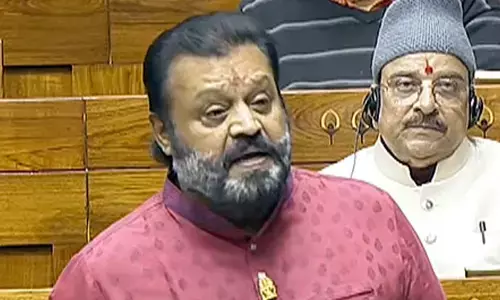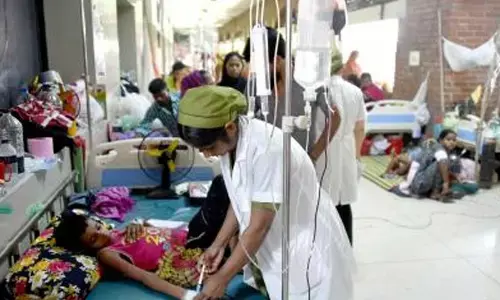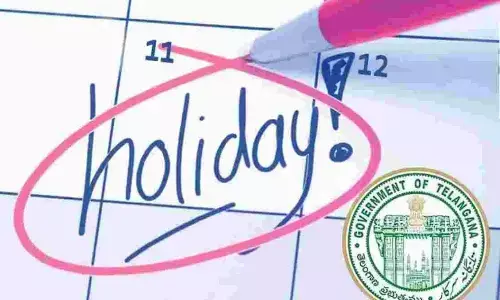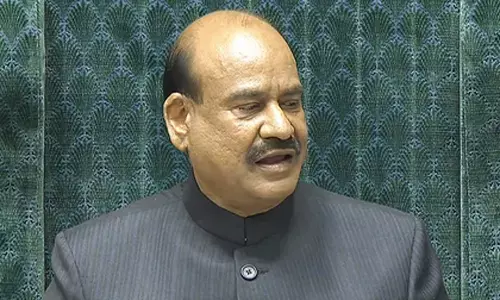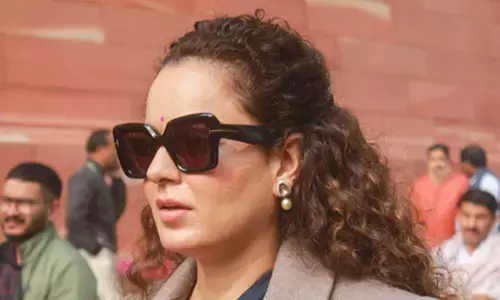BJP factor echoes in the Valley

Jammu and Kashmir will vote starting on Tuesday in the Assembly elections that have for the first time made the BJP a major power, much to the chagrin of the established parties. A host of issues are hogging the campaign.
First phase Assembly polls tomorrow
Jammu and Kashmir will vote starting on Tuesday in the Assembly elections that have for the first time made the BJP a major power, much to the chagrin of the established parties. A host of issues are hogging the campaign.
These include allegations of corruption and family rule, how to improve the economy, how to bring back Bollywood to the scenic state and of course article 370 of the constitution that gives special status to the country's only Muslim-majority state.

A total of 7.2 million people are eligible to vote in the polls to pick an 87-member house. The five-phase election will end on December 20 while counting will be taken up three days later.
Spread over 22 districts with diverse climatic, cultural and religious characteristics, political parties are using every permissible tool to woo voters in Jammu and Kashmir.
Friends and allies of yesterday have suddenly turned foes.
The Congress and the National Conference are contesting elections separately after having ruled the state in coalition for six years. Today, they blame each other for whatever is wrong with Kashmir.
Flush with its Lok Sabha success, the Bharatiya Janata Party (BJP) has entered the battle as a major challenger to everyone including the Congress, the National Conference as well as the Peoples Democratic Party (PDP).
For the first time, BJP leaders are confident of either taking power in the state -- or becoming a kingmaker.
Given its diversity, priorities in the three regions of the state -- Jammu, Ladakh and the Kashmir Valley -- are different. Voters in far-flung backward areas give top priority to roads, healthcare, education and employment. These include the cold desert Ladakh region, districts of Leh and Kargil, border areas in Kupwara, Baramulla and Bandipora in the valley, and Poonch, Rajouri, Doda and Kishtwar in the Jammu region.
Voters in urban areas of Srinagar, Jammu, Samba, Kathua, Udhampur and some other districts are concerned more with political issues like article 370, autonomy and self-rule. Corruption is a major factor.
Separatist leaders in the valley have been giving election boycott calls ever since militant violence started in the early 1990s.
With the gradual improvement in the overall law and order situation in the valley, these calls have had little impact on voter turnout in rural areas. Cities and towns in the valley, however, witness low voting.
Given the security situation, authorities have categorise polling stations as sensitive, hypersensitive and normal - depending on the threat appraisals by intelligence agencies.
More than 50,000 extra paramilitary troops have been sent to help the existing central forces and the state police to provide security to voters and polling venues.
A total of 10,005 polling stations are being set up.
In the first phase, 15 constituencies in seven districts will vote on November 25. The second and third phases will see polling in 18 and 16 constituencies December 2 and 9.
The fourth phase will be held December 14 (18 constituencies) while the fifth and final round will involve 20 constituencies on December 20.
The term of the current Jammu and Kashmir assembly expires by the middle of January next year. A new House must be constituted before the expiry of the present Assembly's tenure.









